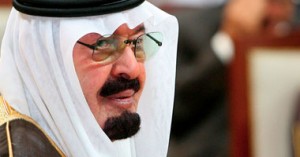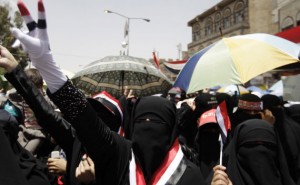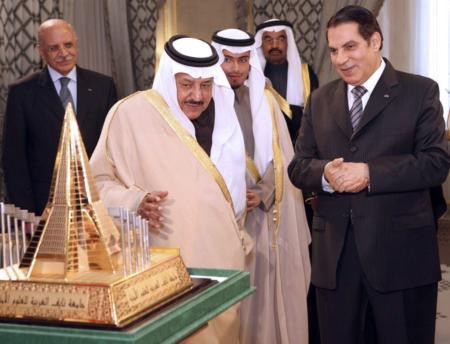Saudi Arabia is once more seeking to shape events in the Arab world, encouraged by a regional upheaval that is threatening to bring down regimes in neighbouring territories and to harm national security in the process.
When King Abdullah acceded as monarch in 2005, hopes were high in the kingdom, as well as in the US administration, that the vacuum in the Arab world could be filled with a more activist Saudi leader, able to improve the regional situation to the benefit of the US-allied Arab “moderates” and to the disadvantage of Iran.
But those hopes were soon dashed.
The inadequacies of the Saudi foreign policy-making machine, a lack of Saudi political will partly due to the king’s age and inclinations, and regional and US obstruction, saw efforts to promote intra-Palestinian peace run into the sand.
Mediation on other fronts - Lebanon, Sudan and Somalia - came to naught.
Backbone of Bahrain
This year, the Saudi leadership has watched with horror as the US has in effect rerun 1979 by abandoning a strategic ally - in this case President Mubarak of Egypt instead of the Shah of Iran.
Washington even appeared to sympathise with what Riyadh considers to be Iran’s de facto allies - the Shia opposition in Bahrain.
The Saudi response to events in Bahrain - located a short drive from the Eastern Province where Saudi Shia are relatively populous - has been to stiffen the al-Khalifa regime’s backbone by once again sending its troops into the Bahraini fray. The Saudi Arabian National Guard last intervened in 1995.
Saudi Arabia has come to the aid of the Bahraini ruling family
The Saudi mission is dressed up in a flimsy flag of convenience, that of the six-country Gulf Cooperation Council (GCC), whose assent has seen nominal UAE and Kuwaiti military contributions too.
However, it is Saudi troops that are underpinning al-Khalifa control in the Gulf island, just as Saudi money lubricates the al-Khalifa patronage power.
Yemen has for several years been Saudi Arabia’s pre-eminent security concern. This is due to al-Qaeda’s presence there, as well as perceived Iranian penetration and the threat of internal Yemeni secessionism.
Yemen face-off
The Saudi alliance of convenience with Yemeni President Ali Abdullah Saleh has however recently collapsed. Saudi Arabia has once again given heft to an apparent GCC initiative - a “peace plan” that requires the Yemeni leader to hand over power to his vice-president.
As both Yemeni government and opposition party representatives are expected to gather shortly in Riyadh to explore the deal, the determining issue will be whether there is a Yemeni will to agree to its terms.
Without such domestic agreement, there will be no Saudi-led breakthrough, even allowing for Riyadh’s political influence, resources and ability to talk to an array of challengers to Mr Saleh’s rule, including Islamist, tribal and secessionist elements.
Yemeni opposition leaders and the GCC have called for President Saleh to step down
Riyadh’s view of the Arab uprisings is shaped by the kingdom’s long-standing concern of maintaining stability in the face of internal and external threats.
Saudi military options have been exercised in Bahrain just as they were 18 months ago in Yemen, in facing down a Yemeni Shia group that had crossed its borders.
As Arab uprisings threaten to increase Iranian and al-Qaeda opportunities in neighbouring territories, Saudi Arabia will attempt to counter them with force, or diplomacy and largesse, as appropriate.
Syrian alternatives
Baathist Syria is not, however, a neighbouring concern. It has long been distrusted as an Iranian ally that has proven unwilling to work with perceptible “Arab” interests.
The Saudi government cannot hope to try to directly influence the regime or events on the ground. In common with the US and Israel, it is not sure that the alternative would be to its advantage, even if it disadvantaged Iran.
Saudi Arabia’s internal authority appears firm because of a mixture of patronage, security and a concern among many nationals - Sunni and Shia - that they stand to lose if the regime is directly challenged.
However the “virus” of popular demands is an uncomfortable spectacle for the al-Saud, seeing, as it does, regional events through the prism of national security and strategic competition.
Saudi Arabia shares with the US a desire to ensure that Iran is also affected by regional popular protests.
But Riyadh does not see Washington as a decisive upholder of this shared interest.
As a result, Saudi Arabia will act unilaterally where it can in order to further its interests. But it is liable to be stymied by a mixture of its own political inadequacies and the force of local events that have a life of their own.






















